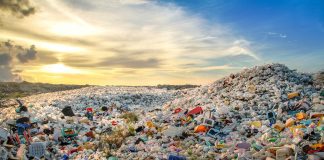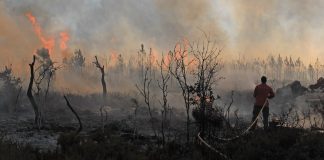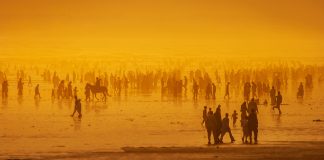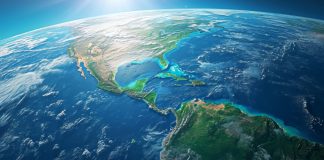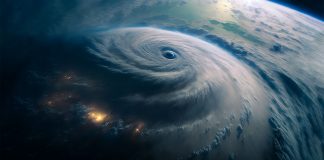How people have viewed earthquakes throughout history
Earthquakes have always struck fear into the hearts of people who didn't know why the earth was shaking but who saw how easily their possessions or loved ones could be lost to such tremors.
The outline of a plastic planet
"We've got all you need, and so much more!" is the tagline that appears in the opening minutes of a famous animated film; a slogan that is not at all disturbing to viewers who have long since become accustomed to the commercials of consumer society.
What we lost when we gave up the land
In the early 1900s, the average American farmer could produce enough food to feed a family of five. Today, an American farmer can feed his own family, and roughly another 100 people. Despite this, we are at risk of encountering the impossibility of feeding a growing population on a global scale. How has it come to this, and what should we do to...
Why should Christians care about the environment?
“Science and religion are two of the most potent forces on Earth and they should come together to save the creation.” (Harvard Wilson)
Are we ready for an “imminent” global water crisis?
By 2030, global demand for fresh water will exceed supply by 40%. A global water crisis looms on the horizon as the world continues its reckless run of "vampiric overuse," warns a new United Nations report.
The IPCC report: How real is the “code red for humanity”?
The Intergovernmental Panel on Climate Change (IPCC), the United Nations body for assessing the science related to climate change, has published its latest assessment of climate change in a report referred to by the UN Secretary-General as a "code red for humanity".
The culture of disasters
Over the last 25 years, the relationship between theology and natural disasters has undergone intense scrutiny, with its consequences becoming increasingly apparent as disasters have remained a key public interest.
The risks of discussions about saving the world
Concern for the planet's climate and its ecology has occupied the world's attention for many decades. In the 1980s, the ozone layer depletion caused by chlorofluorocarbons and similar gases was observed, and in 1987, the Montreal Protocol was finalised.
Pollution in our own homes is as dangerous as outdoor pollution
Air pollution is the greatest risk factor for both the environment and human health, according to the World Health Organization.
The city that decided to be green 20 years earlier than the rest of Europe
Although the "Climate Emergency Declaration" was adopted by the European Parliament as a symbolic act, more and more countries, and even cities, began to take the issue seriously. On December 18th 2019, the Munich city council declared a climate emergency, and the municipality said it intended to reach climate neutrality by 2035.
The thirst of the blue planet
The way we're managing our natural resources is unsustainable, but it's easy to ignore the warnings because vigilance is dormant in a society that fetishises prosperity.
Struck by the “storm of the century”
Roads turned into raging rivers. Downed power lines. Fallen trees. Homes left in ruins. Those who have experienced the fury of a hurricane will be familiar with these scenes, yet they will still feel uneasy when they see them. This is not only because they are signs of a devastating storm, but also because they seem to show a world that is changing...
The effect of our consumption on the planet is irreversible
We have introduced so much carbon dioxide into nature's operating system that we no longer know "what is an act of God and what is an act of man" when it comes to natural disasters striking with increasing frequency and overwhelming power, says Nathan Lewis, a chemistry and energy specialist at the California Institute of Technology.













